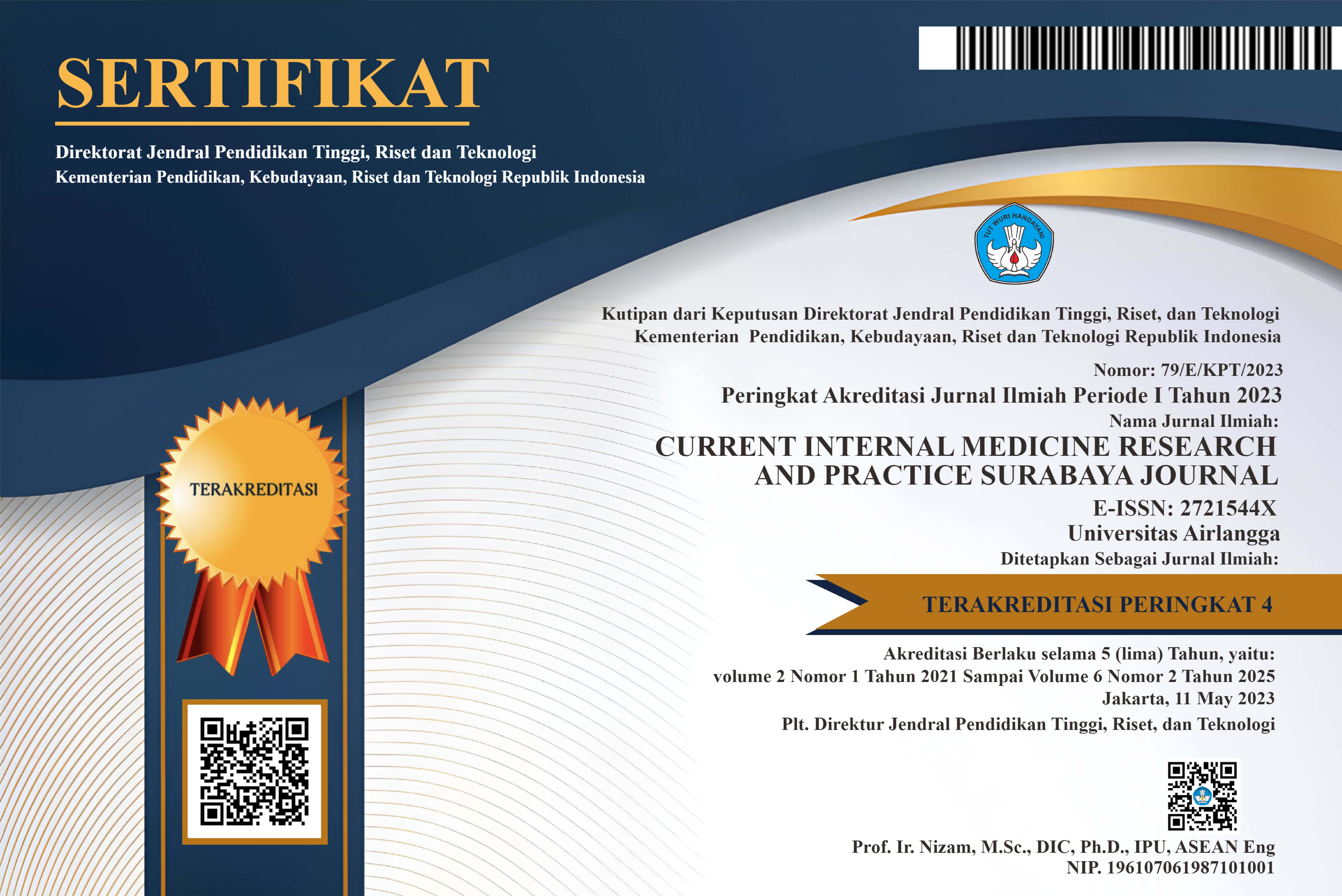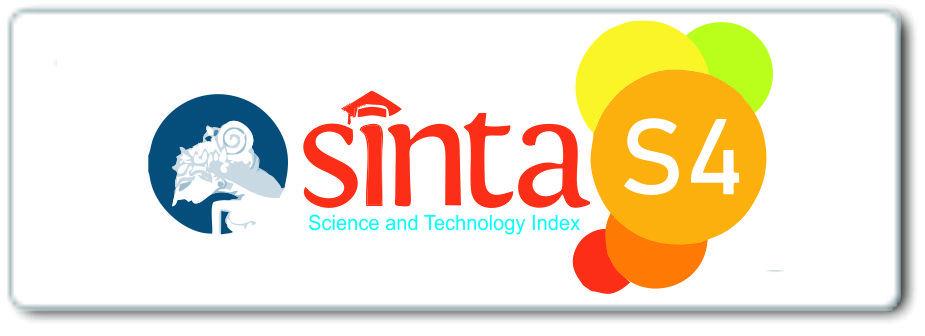ASSOCIATION BETWEEN EXCLUSIVE BREASTFEEDING AND CHILDHOOD ALLERGY INN PEDIATRICS OUTPATIENT UNIT RSUD DR SOETOMO SURABAYA
Downloads
Introduction: Allergy is one of the most common diseases for children in the world. The incidence of allergy has increased sharply in Indonesia in the last 20 years. At any time, 30% of people develop allergy manifestations, more than 40% of school-aged children have experienced an allergy manifestation, 20% have experienced asthma, and 6 million people have suffered atopic dermatitis. Considering the incidence number has kept increasing, a prevention effort has become a crucial aspect. One of the easiest methods is exclusively giving breast feeding. Experts have supported that exclusive breastfeeding can reduce children's allergy risk.
Methods: This study was analytical-observational research with a case-control study design. The subject of this research is patients in the pediatrics outpatient unit of Dr. Soetomo General Academic Hospital. They are suspected of suffering from allergies and have a familial atopic history. Data were collected by reviewing the patient's medical records as secondary data. After matching the subject, the data were analyzed using the chi-square test.
Results: From the total of 118 samples, it was found that in the case group, 13 children had been given exclusive breastfeeding, and 46 children had not been given exclusive breastfeeding. Meanwhile, in the control group, it was found that 31 children had been given exclusive breastfeeding, and 28 children had not been granted exclusive breastfeeding. A bivariate analysis found that exclusive breastfeeding can reduce the risk of allergy (p-value = 0.001; OR= 0.255 CI = 0.115 – 0.468).
Conclusion: This research concludes that children breastfed exclusively will have a risk of allergy 0.255 times more than those who had not been breastfed exclusively.
Copyright (c) 2022 RM Aditya Wisnu Wardhana, Azwin Mengindra Putra Lubis, Djohar Nuswantoro

This work is licensed under a Creative Commons Attribution-ShareAlike 4.0 International License.
Copyright (c) Author
1. The journal allows the author to hold the copyright of the article without restrictions.
2. The journal allows the author(s) to retain publishing rights without restrictions.
3. The formal legal aspect of journal publication accessibility refers to Creative Commons Atribution-Share Alike 4.0 (CC BY-SA).






















